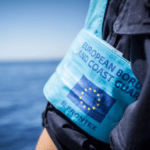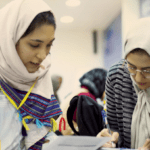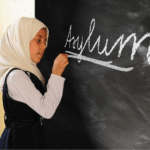At a time where the integration of refugee and migrant children into host societies is most pressing, education systems face multiple challenges due to growing cultural, linguistic and ethnic diversity and to socio-economic inequalities.
Scope
IA Innovation Action:
Proposals should implement pilot actions able to experiment formal, informal and non-formal education solutions to address the integration challenges of children (0 to 18 years old – ISCED 0-3) from recent migration cohorts, in particular children of refugees and asylum seekers, and unaccompanied minors, including those residing in hotspots and reception centres.
The proposals shall include actions with local schools, teaching programmes and organizations working with children (with or without migration background) and focus not only on formal educational settings but also on informal social and learning environments, beyond schools. Proposals should address at least three of the following dimensions: governance and funding of education institutions, funding of integration actions targeting children, roles and attitudes of families, gender aspects, communities, civil society organisations and local service providers, preparedness of schools and teaching staff, practices for language learning and use of native languages alongside the language used at school.
Processing of personal data of migrants must be conducted in accordance with EU data protection legislation and existing regulation such as eIDAS.
The Commission considers that proposals requesting a contribution from the EU of EUR 3 million would allow this specific challenge to be addressed appropriately. Nonetheless, this does not preclude submission and selection of proposals requesting other amounts.
Expected Impact
The actions will inform policymakers, families, teachers and other stakeholders on effective practices for integrating migrant children in schools and more broadly in society, and for developing more inclusive schools, able to increase sense of belonging of all children.
Proposals should develop and implement actions which can be adapted, rescaled and reproduced in different environments according to the local/regional needs and involve stakeholders from public administrations, civil society, migrants and the host community from a very early stage as appropriate.
Deadline
12th March 2020 17:00:00 Brussels time







Leave a Reply